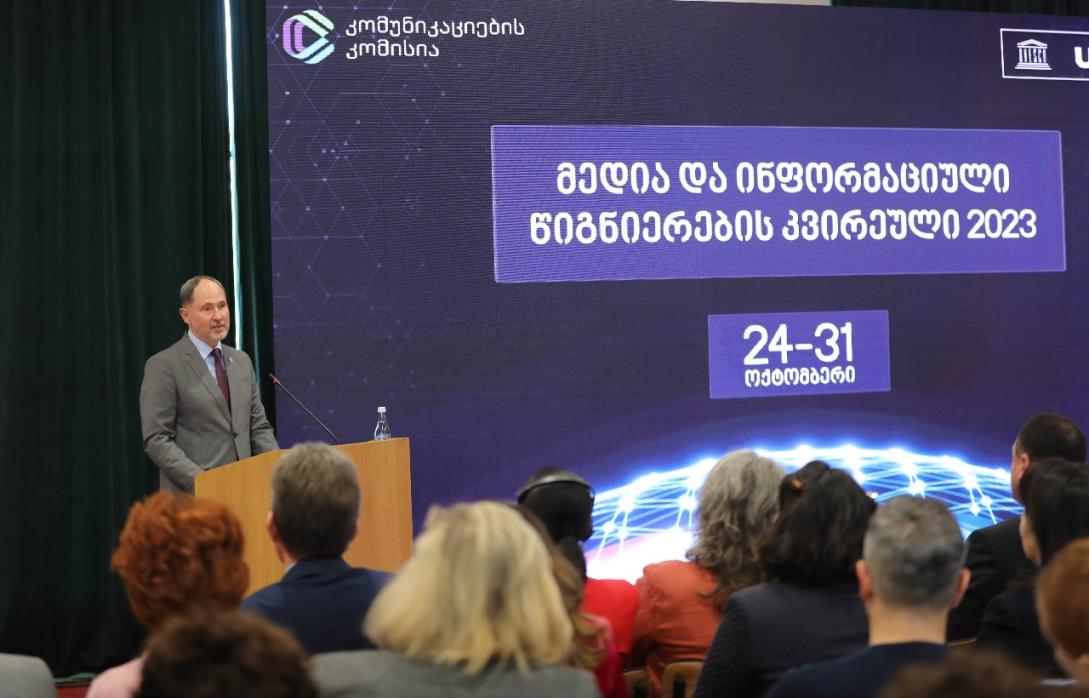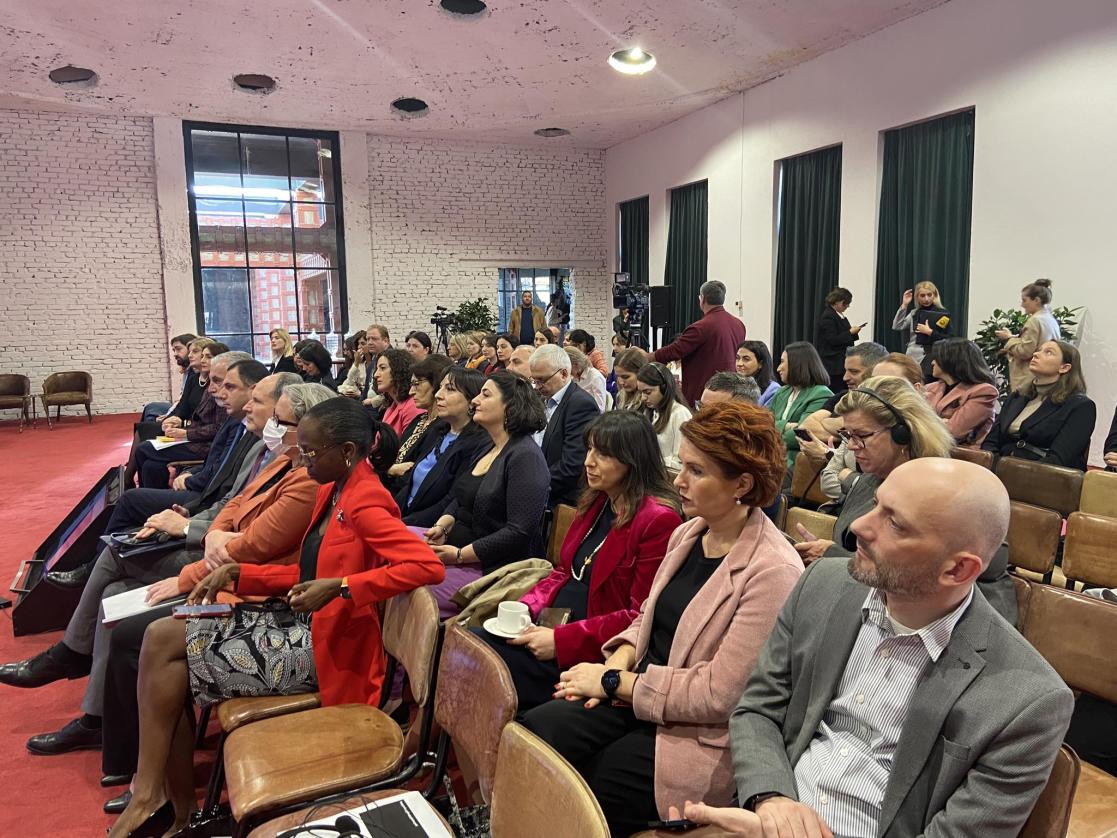Key Note Speech by the EU Ambassador Pawel Herczynski at the 2023 Global Media & Information Literacy Week closing conference

This year, the focus of UNESCO’s Global Media and Information Literacy Week is on digital spaces. Multilateral cooperation between various digital platforms and other relevant stakeholders is essential for integrating media literacy into actionable policies, streamlined operations and practical products.
These days, children start navigating digital spaces at a very young age. Therefore, it is essential to equip them with critical thinking ability and basic media literacy skills early on.
Here, I should commend ComCom’s efforts. In line with its mandate – and with support from international partners – you are advancing media and information literacy in Georgia.
Your most recent achievement – together with UNICEF - of integrating media literacy into the national educational curriculum as an elective course - deserves a separate recognition.
Disinformation is a global challenge and a national security threat. During his recent visit to Georgia, HRVP Borrell pointed out the aim of disinformation and propaganda is ‘to poison the atmosphere, to disturb the messages and to create mistrust’.
Distinguishing evidence-based truth - which is backed up with solid facts – from elaborate lies, devised to drive us apart, mislead, or even harm us, is a continuous battle. We need to improve our media literacy skills to better tell apart truth from lies and to curb their spread. For that, we need a united front and close collaboration.
From the EU side, we have been collaborating with both state and non-state actors for the past several years to help promote media literacy in Georgia.
We work with ComCom and with the TPDC - Teachers Professional Development Center, as well with several civil society organisations to build the resilience of Georgians toward disinformation by improving their ability to critically access and consume information.
We help build the capacity of schoolteachers nationwide through trainings. We also equip them with modern Guidelines produced by the European Commission to help them promote digital literacy and the ethical use of Artificial Intelligence in their classrooms.
Just last week, EU-funded training in media literacy was conducted in the high school in the village Adzvi near Gori. ABL is only few meters away from that school, it’s visible from the classroom windows.
By supporting media literacy activities in Georgia, we are defending Georgians, including vulnerable groups such as children and teachers from Adzvi, from manipulated and weaponised information spread by foreign actors, sometimes repeated and amplified by domestic actors. We help them to better navigate the world oversaturated with information which is often confusing or loaded with malign intent.
Let me quote Georgian fact-checkers, who say that “media literacy is a survival skill to navigate the chaotic information ecosystem. It ensures long-term immunity against disinformation.” Although media literacy is an effective remedy against disinformation, it takes time to yield results.
EU is ready to provide help and support – for as long as needed - to all players in the field of promoting media literacy in Georgia.
With this, let me wrap up and wish you an interesting event ahead.
Didi madloba.


